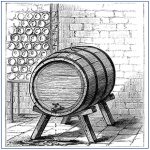Brewers Notice Breweries Brewpubs
Brewers Notice Breweries Brewpubs
In order to begin operations as a brewer, or a brewpub you need a brewers notice. A brewers notice is required for anyone who brews beer, or produces beer for sale. Anyone who produces beer and is tax exempt, is not considered a brewer, basically those people are considered home brewers.
Home production for personal, or family use, is permitted and exempt from tax provided the producer is an adult. A home brewer must also make sure their state permits home beer production. If a brewer’s production does not exceed 100 gallons per calendar year, per adult residing in the household, they are considered a home brewer.
Lindsey A. Zahn, Esq. is an alcohol beverage and food attorney at Lehman Beverage Law, PLLC. Ms. Zahn has previously counseled wine, beer, and spirits companies on licensing and compliance, federal and state labeling, customs regulations, supplier agreements, and advertising and promotions. She is an award-winning author on wine law, publishes a leading wine law blog called On Reserve, and has traveled to over a dozen wine regions in the U.S. and Europe.
John D. Messinger, Esq. is an attorney at Lehrman Beverage Law, PLLC. He joined the firm in 2006 as a law clerk, after working as an intern and consultant with the World Bank, Legal Operations and Policy. John focuses on TTB labeling and formulation matters and also state compliance issues.
John has a particular interest in beer and craft beer issues, and he is an avid small-scale brewer.In this CLE class clip, Lindsey and John discuss Brewers Notice Breweries Brewpubs.
The basic requirement to obtaining a brewers notice, is that you have a proper location. This location must not be located within a residence, or attached to a residence. Each location near a residence, must have separate accessibility. For instance a loft is above a brewery, the loft residence has to have completely separate accessibility that does not connect to the brewery operations.
One must also provide a lease, or proof of ownership. In the event there is a landlord for the premisses, the lease must show the landlord is knowledgeable of the brewery operations on site. A complete description of the location, floor plan, and that the location is zoned for commercial use will also have to be verified in writing.
A brewer will also need to provide what their security measures are going to be. Whatever your security measures are, whether an alarm system or security guards, you will need to have those plans detailed in writing.
An environmental impact assessment will also be required. An environmental assessment explains how your operations will affect the environment. A sample question they will expect answered, is if there is any runoff, how will that be dealt with. How your operation will deal with any environmental issues will need to be explained fully.
If you are using the brewing premises in a contract brewing arrangement, you will need a formal arrangement on how the tenant produces beer using the host’s brewery’s space and equipment. The tenant brewer will need to keep separate records, label beer with their own name, obtain separate label approval, and pays taxes at appropriate rate upon removal. The tenant must also qualify as a brewer by filing a brewer’s notice with supporting documentation.








